Civil War Era Masonic Mason Sword Sir Eugene F. Falconnet Soldier D B Howell
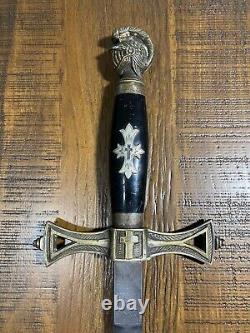
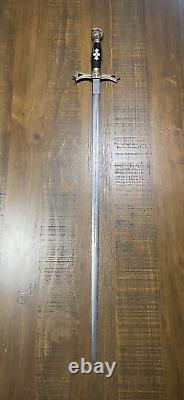
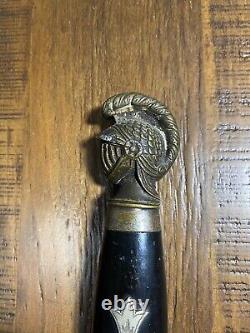
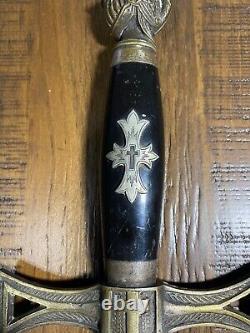
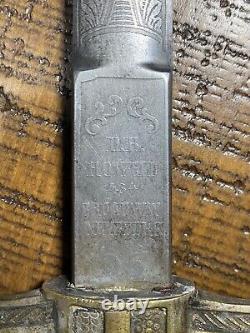
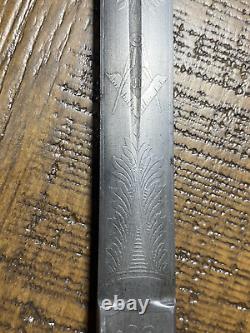
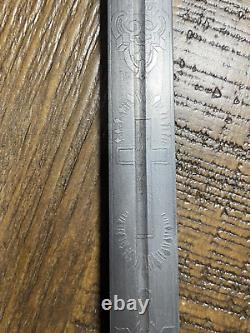
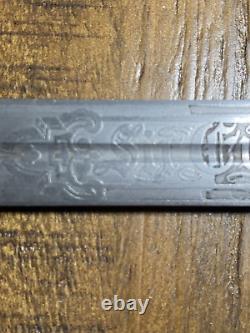
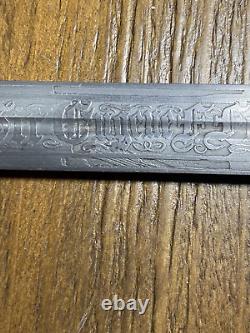
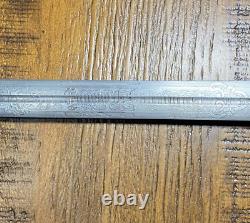
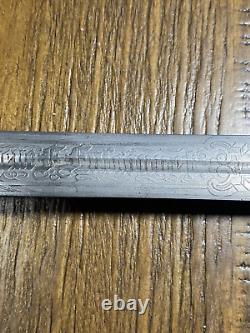
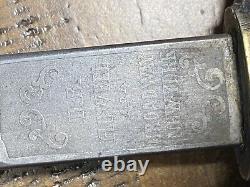
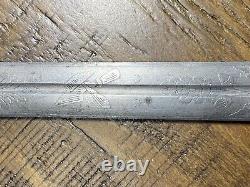
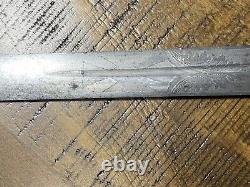
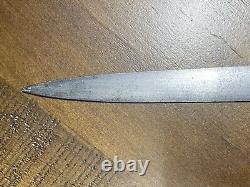
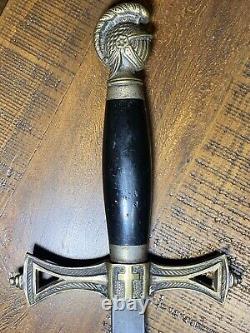
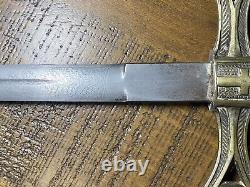
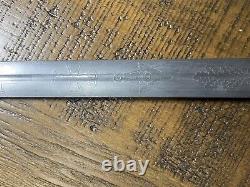
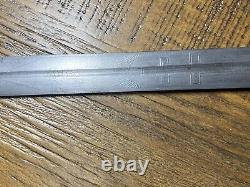
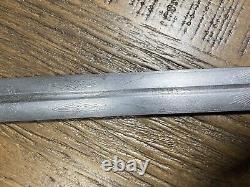
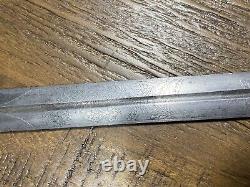
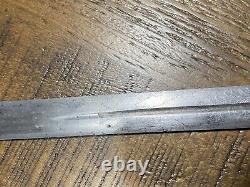



Civil War Era Masonic Mason Sword Sir Eugene F. Falconnet Soldier D B Howell. Wear- scratches scuffs, finish loss. Approx 37" Long by 5 1/2". Before he became Americanized he was known as Eugène Louis Frédéric de Freudenreich Falconnet. From the Tennessee Knights Templar: Nashville Membership to 1883. Born Berne, Switzerland, July 15, 1830.
Master Mason, Clinton Lodge 34, March 18, 1855; Royal Arch Mason, Bolivar Chapter 27, October, 1857; Knight Templar, Nashville Commandery I, March 29, 1860. Came to the United States August, 1850. Proceedings of the American Society of Civil Engineers, volumes 14-16.
Died October 14th, 1887 Major E. Falconnet was born in the castle of Bremgarten, on the River Arr, near the City of Berne, Switzerland, in the year 1833. The Falconnets, though of noble ancestry and connections, had lost their estates during the wars of Napoleon and the succeeding revolutions. Major Falconnet acquired his education alternately at Zurich and Geneva, taking his final degree when he was quite a lad.
He came to the United States with his father in 1850. After spending some time in the Northern States, Major Falconnet went on a visit to Mexico with his uncle, Colonel F. Returning to the United States, he went to Tennessee where, in 1852, he became Assistant Engineer of the Mobile and Ohio Railroad. From 1855 to 1856 he was Resident and Division Engineer on the Mississippi Central and Tennessee Railroad; 1856-57 Principal Assistant Engineer on the South Western Railroad of Tennessee, with headquarters at McMinnville, Tenn. Falconnet was appointed Sergeant Major of the Rock City Guards.In 1861 he became a member of Rutledge Battery. This battery covered the retreat from Shiloh, Major Falconnet firing the last gun which was fired by confederates. As an officer of Artillery and commander of cavalry, he served in the confederate army, during the late war, with distinction. At the close of the war Major Falconnet resumed his professional work and was connected with the Tennessee and Pacific and the South Western Railroads, as Chief Engineer, from 1866 to 1870; afterwards Resident Engineer of Sparta Branch, Memphis and Charleston Railroad; for several years, afterward Chief Engineer, Cumberland and Ohio Railroad, from 1873-76; from 1877-79 President of Nashville and Tuscaloosa Railroad; in 1879 appointed Chief Engineer of teh Owensboro and Nashville Railroad, and from that time until the date of his death prominently connected with the opening up and extension of very many of the Southern railroads, as well as many other engineering works in the Southern States.
In 1880 Major Falconnet became very much interested in aerial navigation. Major Falconnet became a Member of the American Society of Civil Engineers, June 3d, 1874. Toward the close of the war he married Miss Burtwell, of Florence, Ala, who, with several children, survives him. Major Falconnet was an able, painstaking and expert engineer; a man of rare gifts and of unassuming modesty; brusque in his business dealings, in personal intercourse a master of the lighter graces of society and of most charming manners.
One of his most intimate personal acquaintances writes of him: Yet variable and adventurous, and often stormy as his life has been, he was born to gentler conditions, and, except for his stern sense of his duty, and an obstinate, unsoliciting modesty, his career might have been very much more brilliant, though it could not have been more honorable. He died at Nashville, Tenn. Of malarial fever, greatly regretted by his widow and children, and a wide circle of friends and acquaintances. The source for the burial information is the Eugene Frederic Falconnet Papers which are located at the Tennessee State Library and Archives.
TSLA indicates he was born in 1832 but the above obituary says 1833. In addition to being a soldier, inventor, engineer and geologist he was also a composer. He kept a Civil War diary which is available for viewing at TSLA as well as many other documents, papers and drawings.At his death he is said to have expressed regret for having served in the war and he bequeathed his weapons to his son. I believe that son to have been John F. Falconnet who was born about 1866. The last time I find any mention of him is in the Nashville City Directory for 1890. Cause of death: Uremic Poisoning.
Source: Register of Deaths for Davidson County TN.

